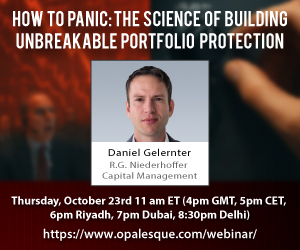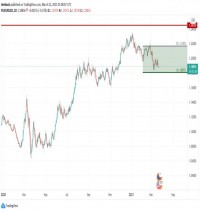|
Amiri Capital Amiri Capital LLP was founded in early 2006 by Bindesh Shah and Richard Ellis. The firm develops, markets and distributes Shariah-compliant investment products for Islamic investors worldwide and has developed its own proprietary Shariah Screening System, called Amiri S3, which scrutinises about 38,000 stocks globally for Shariah compliance.
What are some of the key drivers of growth for the Islamic finance industry? Considering these factors, what the opportunities being presented to new entrants into the space, and more specifically as it relates to alternative products? In spite of this, there is a limited range of good quality Shariahcompliant investment products. Indeed, in the alternative space there are hardly any products. It is highly likely the investment industry in the Islamic sector will move in the same direction as the conventional sector, where there has been a shift toward alternative assets because of the desire to create more predictable and higher returns. This will happen in the Islamic sector as well.
In the context of alternatives, where do you see the industry in terms of investor acceptance and sophistication? What are the major impediments to bringing more of these products into the marketplace? Part of the reason there is a dearth of alternative Islamic funds is that they are very time-consuming and difficult to launch. A conventional hedge fund takes, on average, a year and a half to go from idea to market. By contrast, it can take at least three years to launch a Shariah-compliant fund. An Islamic fund faces hurdles unknown to conventional hedge funds Ė specifically constructing a Shariah vehicle and getting it approved by Shariah scholars. This takes time and patience, particularly in launching something new and untested.
What have been some of the main challenges from the product manufacturing point of view? How can these be mitigated or managed? The third hurdle is managing everything in a cost effective way, so as to avoid creating any additional ongoing cost for the fund - to ensure It is no more expensive to run than a conventional fund. Of course, there will be differences in the cost structure, but the net effect should be broadly equal. This is necessary to reassure investors that their returns will not be hurt.
Can you describe the process you have undertaken to attain Shariah compliance? Are there any specific pitfalls or misconceptions that need to be addressed from the start?
Why are Shariah compliant alternative solutions so complex and lengthy to develop? While the nonpermissibility of interest and/or leverage is at the forefront, what are other issues that must be taken into consideration? The optimal solution is to devise a new structure that retains the economics of shorting but takes away these issues, while maintaining the commercial viability of the fund. It canít just be fine from the Shariah perspective: itís about everything coming together. In setting up an Islamic fund of funds, the real test for an underlying manager is not whether he or she is willing to give it a try, but whether he or she can make money. One other point: not only must the managers be able to work within the structure, but the prime brokers must be able to implement it. Most of the legal documentation in the conventional hedge fund sector has been developed over the past 20 years, and much of it is unacceptable under Islamic law (actually, now following the Lehman bankruptcy where many hedge funds found that their not as well protected by this legal documentation as they thought much of it is now under question in conventional markets as well). This means a great deal of work with the prime brokers, reengineering their systems and rewriting legal documentation.
While you have developed your capabilities internally, would single managers need to build their own product and compliance function as well? Are there any specific types of managers/strategies that are better suited to do this? The next thing they need to take into account is that every investment must be checked against a Shariah screening system and every investment must be scrutinised to see if it meets an Islamic fundís criteria. This can be unnerving for some managers. From the point of view of an Islamic fund of funds, the best managers are likely to be value managers, operating concentrated portfolios. Theyíre the most suitable to work in the Shariah space where the investment universe is limited by Shariah criteria and managers need to look at the stock more fundamentally than otherwise.
What are some of the issues relating to the product itself (i.e. portfolio construction, manager identification/ selection, diversification of idiosyncratic risk, etc)? There is also the issue of the number of underlying managers. Shariah-compliant funds of funds will tend to have fewer managers than conventional funds of funds Ė principally because there are fewer managers who can meet the criteria of an Islamic fund. Some people say a true fund of funds needs a multiplicity of underlying managers to gain the benefits of diversification. But again, academic study after academic study has shown that you get 80% of the benefit of diversification by using just five managers.
We often hear about tapping Middle East liquidity and several industry guesstimates, on the ground though how crucial is product distribution and how does it differ from conventional products? |
Opalesque Islamic Finance Intelligence
Portfolio Interview Bindesh Shah, partner and founder, Amiri Capital LLP |
|





 RSS
RSS










